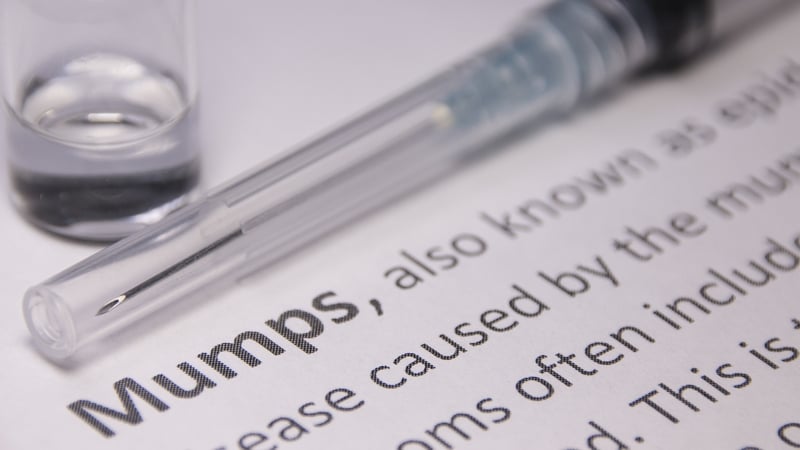
Outbreaks of mumps have become widespread around the country, the Health Service Executive has said.
There were 132 cases of mumps reported to the Health Protection Surveillance Centre last week.
Mumps is a highly contagious viral infection, and the most common symptom of mumps is a swelling of the parotid glands.
The glands are located on both sides of the face and the swelling gives a person a distinctive 'hamster face' appearance.
Speaking on RTÉ's Morning Ireland Dr Kevin Kelleher, the HSE's Assistant National Director of Public Health, said it is happening because a large portion of 15-30 year old people have not got full protection against mumps.
He said not all of them are getting the MMR vaccine or are only getting one dose, when people need at least two doses to be fully protected.
The HSE is warning schools, colleges and universities about the outbreak.
What are the symptoms of mumps?
The HSE say the symptoms of mumps usually develop between 14 and 25 days after being infected with the virus. The average incubation period is around 17 days.
The swelling of the parotid glands, which produce saliva, is the most common symptom of mumps.
They are located on either side of the face, just below the ears.
Both glands are usually affected by the swelling, although in some cases only one gland is affected.
The swelling causes additional symptoms, including:
- pain and tenderness in the swollen glands
- pain on swallowing and/or difficulty swallowing.
Other symptoms of the mumps include:
- headache
- joint pain
- nausea
- dry mouth
- mild abdominal pain
- fatigue
- loss of appetite
- inflammation of ovaries, testicles, deafness
- high temperature (fever) of 38ºC or above.
The HSE advises people to contact their GP if they suspect that they, or their child, has mumps.
While the infection is not usually serious, mumps share symptoms with other, more serious types of infection, such as glandular fever and tonsillitis.
People are advised to visit their GP so that they can confirm, or rule out, a diagnosis of mumps.
How do you treat mumps?
There are currently no anti-viral medications that can be used to treat mumps.
As a result, treatment is focused on relieving symptoms until the body's immune system manages to fight off the infection.
People are advised to get plenty of bed rest until the symptoms have passed, while over-the-counter painkillers like ibuprofen or paracetamol can reduce pain.
Drinking plenty of water and avoiding foods that require a lot of chewing are also recommended.
People diagnosed with mumps are also recommended to stay away from school, college or work for five days after the symptoms begin.
Regular handwashing and use of tissues to cover the mouth and nose when coughing and sneezing are also recommended to prevent the spread of the disease.
No comments:
Post a Comment